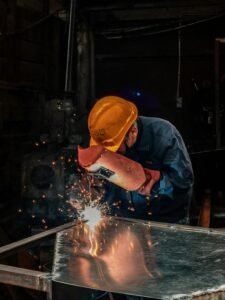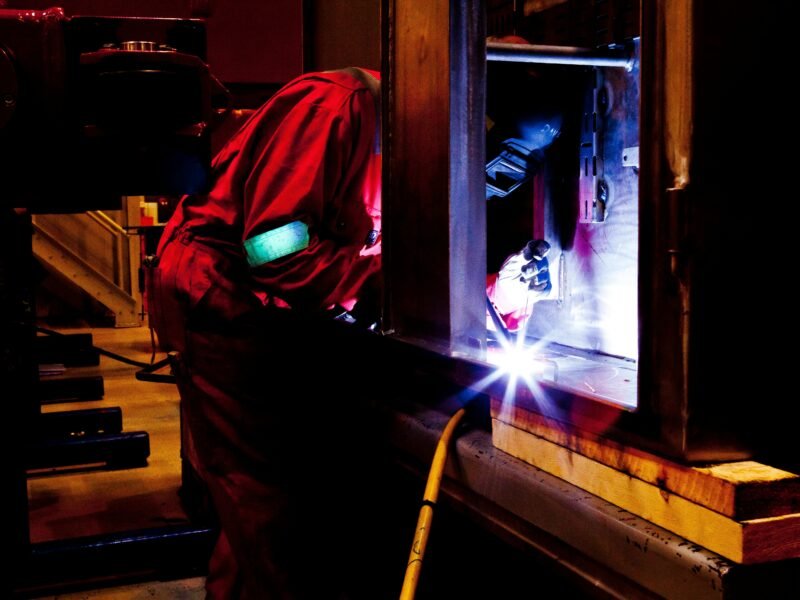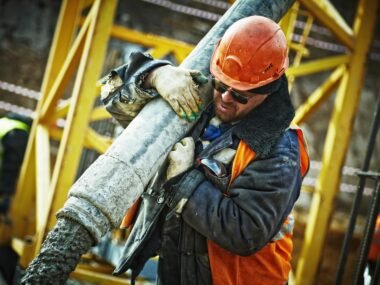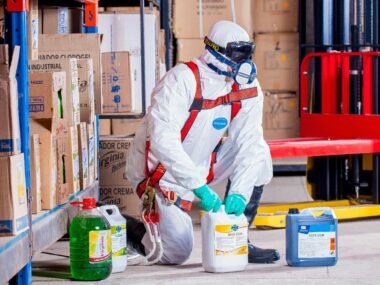Welder Job is the ever-booming in construction, manufacturing, and energy industries of Canada, many experienced welders head to the country. Whether you are a would-be welder or you plan on immigrating into the country in search of job opportunities, take a look at this comprehensive guide that shows all about welder jobs in Canada.
Why Welder Job is a Great Career Choice in Canada
Welding is somewhat more than just joining pieces of metals. It is an art- skilful and technical with an eye for detail. The skill of welders is essential in various industries, right from automotive and aerospace to shipbuilding and pipelines.
Along with the increased demand for the development of infrastructure, the welding jobs in Canada are on a booming stage these days and are also in a reputable position, which proves to be very gainful.

Demand for Welder Job in Canada
Most of these industries, such as construction, energy, and manufacturing, are really in demand for welder jobs in the country. The Job Bank Canada explains that they have continuous demand for welders because of the expansion projects both in urban centers and remote areas.
These welding positions would be found quite frequently in provinces such as Alberta, Ontario, and British Columbia, where the industrial growth is at its peak. Whether one is a new or experienced welder, there is definitely a range of opportunities.
Types of Welder Jobs in Canada
There are several different types of welder jobs in Canada, each with varying levels of required skill and specialization. Some of the common welding jobs include:
- Arc Welders: They join metals by electrical current.
- MIG/TIG Welders: They deal with specific kinds of metals, including aluminum and stainless steel.
- Pipe Welders: The main dealing is in joining pipes for industries that deal with oil, gas, and water.
- Fabricators: They fabricate or build and assemble metal structures from scratch.
With each different welding job, there are different challenges and opportunities, making this career line quite versatile. Depending on the nature of your engagement, you may be required to work at a shop or on-site, usually entailing traveling to different locations where the projects are based.

Requirements for Welding Jobs in Canada
You must meet certain qualifications and certifications before you begin your career as a welder in Canada. Here is what you need:
Education and Training
Most welding positions throughout Canada require high school. However, an individual must have specialized training in order to learn welding techniques. Many are opting to complete a technical program or apprenticeship. The typical welding apprenticeship will last 3-4 years and classroom training will include on-the-job training. After completing your apprenticeship, you will be viewed as a journeyman welder. (Source)
Certifications
The certifications for becoming a welder will vary depending on the province in which you are working in Canada. For example:
- Alberta and British Columbia: Welders must undergo a certification examination to get a trade qualification certificate.
- Red Seal Endorsement: It is nationally recognized and provides welders the right to work in any province of Canada without requiring any additional provincial certifications.
Moreover, many employers prefer welders having certificates in specialized techniques like MIG, TIG, and Arc welding; hence the more certificates you hold the more you get a level of job opportunities.
Salary Averages for Welders in Canada
The salary for welders in Canada may change according to the geographical location, years of experience, and industry. In rough estimates, the expectation would be from entry-level to experienced and specialized as follows:
Besides the hourly wages, in most cases, they also get overtime allowances, traveling allowances, and insurance packages. People working at remote sites or under high-risk conditions are paid considerably higher.
Best Provinces for Welder Jobs in Canada
- Alberta: Due to the high-demanding of welder job in oil and gas industry, the Province of Alberta is ranked at the top for paying its welders at higher rates.
- Ontario: As it contains the center of many manufacturing plants and construction projects, Ontario offers a vast scope for welders.
- British Columbia: As BC is famous for shipbuilding and construction industries, it also offers several lucrative jobs related to welding.
Work Environment and Job Outlook
These are the welders who work in workshops, building sites, and industrial plants. Physically demanding, one is often obliged to work areas that may involve confinement, heights, or even extreme weather conditions. Safety is always paramount; for this reason, welders normally wear their helmets, gloves, and flame-resistant clothes as protective gear against any harm.
As for the job, the condition of welding jobs in Canada is excellent. Many expert welders are at the edge of retirement, thus making room for young professionals. Secondly, with the growing infrastructural development and manufacturing industries, the demand for welders is expected to grow more.

How to Apply for Welding Jobs in Canada
If you think that you are all ready to dive into this industry for a welder job, here are some steps you might want to consider in order to have a better chance of landing a job:
- Update your resume and include your experience in welding, certification, and any other special skills you may possess.
- Job Boards: There are new available jobs for welders every day on Indeed, Job Bank Canada, and LinkedIn, among others.
- Trade Associations: Be a member of trade associations that put you in contact with job leads, such as the Canadian Welding Association.
- Companies Hiring: Most companies in the building, automobile, and petroleum industries hire welders directly. Prepare your resume with samples of your previous work and contact them directly.
Conclusion:
The scope of welding jobs in Canada is huge for those who want a well-paying and secure career. The trade is highly in demand within the industries; hence, welders are vital in terms of maintaining infrastructure and manufacturing in Canada. You can acquire a decent job with all the essential certifications and experience in one of the most sought-after trades within Canada.
Frequently Asked Questions about Welder Jobs in Canada
- What are the requirements to work as a welder in Canada?
A high school diploma and formal training through a welding apprenticeship or technical program are called for. Certification is necessary, with several provinces offering trade qualifications. Since the nature of the job may require travel from place to place, there is a heavy recommendation for Red Seal Endorsement for nationwide mobility.
- What is the average salary of welders in Canada?
The prices for welders’ services vary from $18 to $80 CAD per hour depending on the level of experience and specialty, place of residence.
- Is the job of a welder in demand in Canada?
Yes, the services of welders are in very high demand, especially in the provinces of Alberta, Ontario, and British Columbia due to the fast pace at which the industries of construction, manufacturing, and energy resources are developing.
- What safety precautions should a welder in Canada take?
Welders have to be very cautious during work. They have to wear their helmets, gloves, and flame-retardant clothes. The employers also make sure that the environment the welders work in is accident-free.




